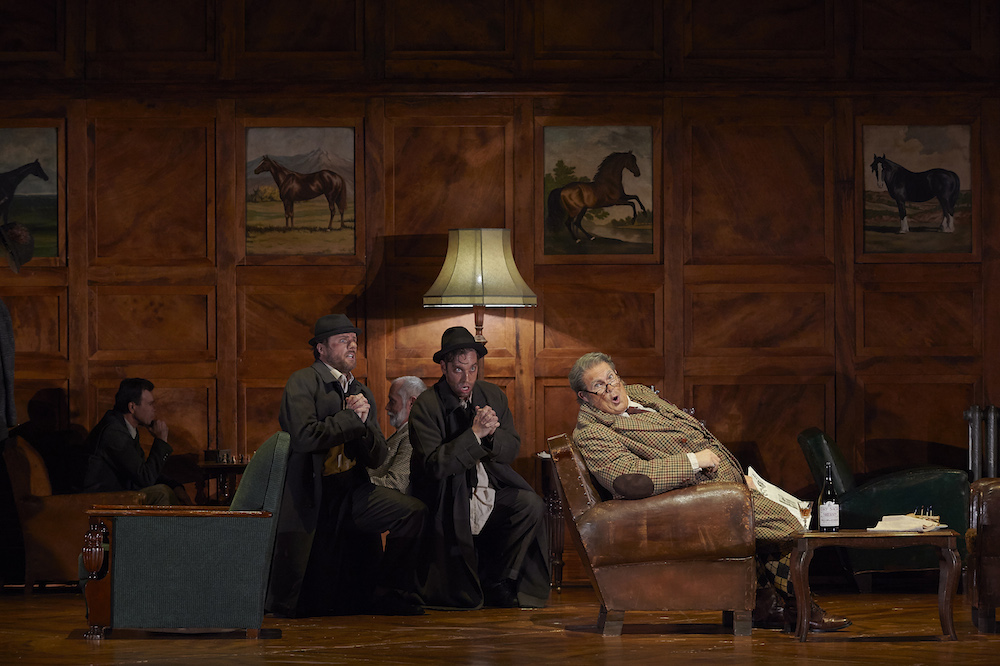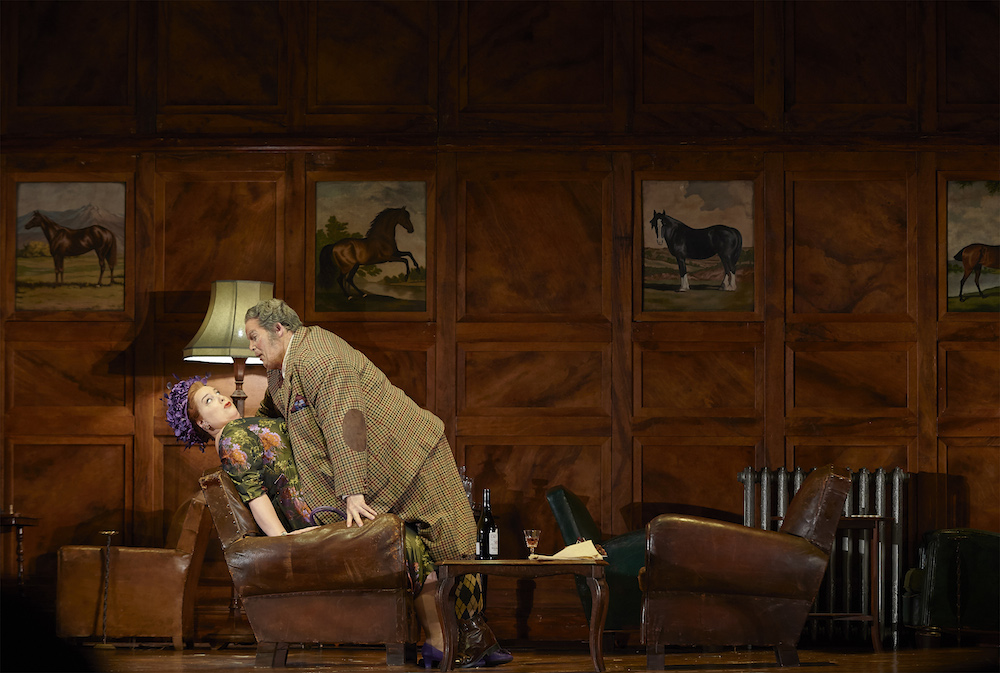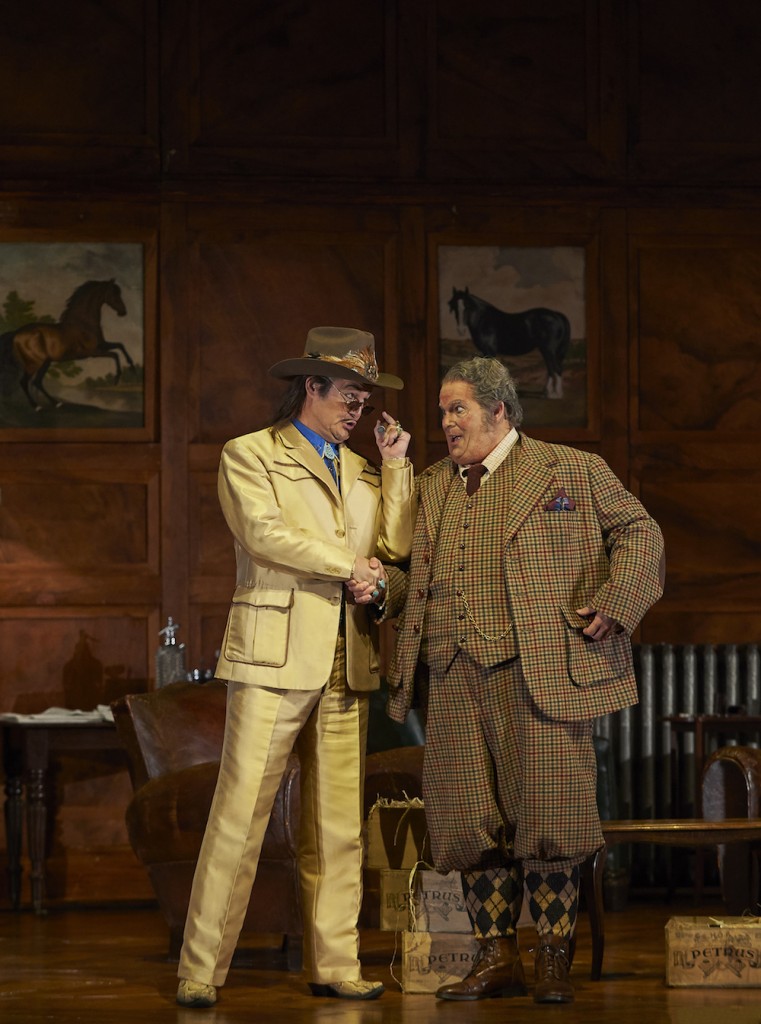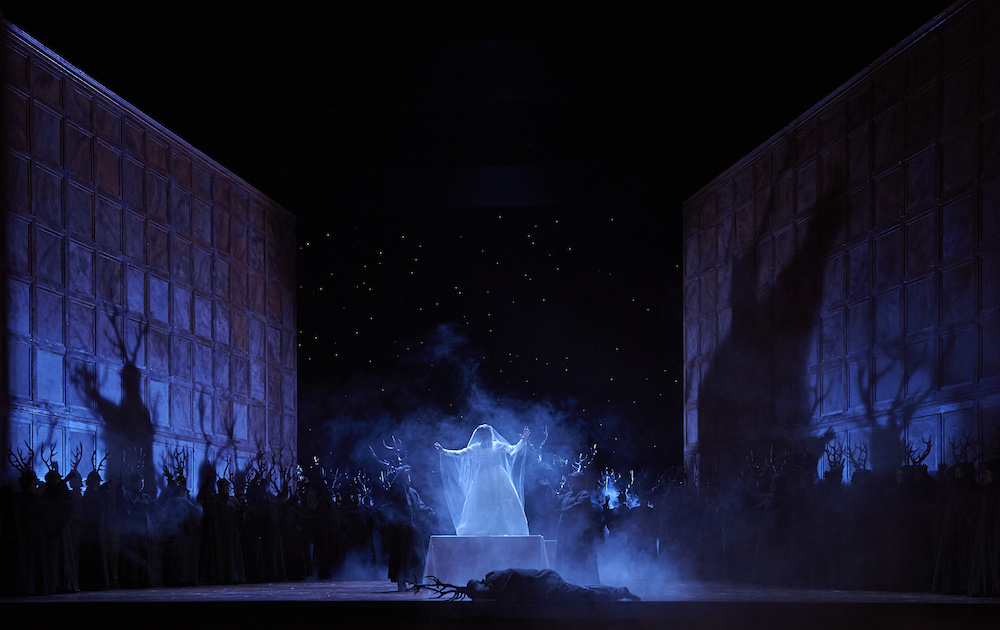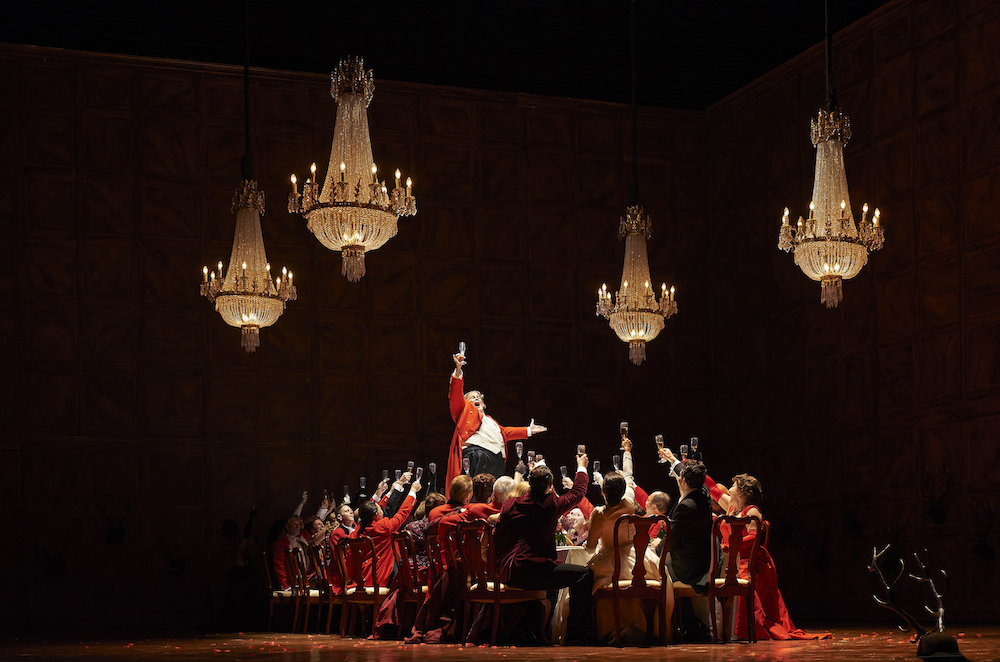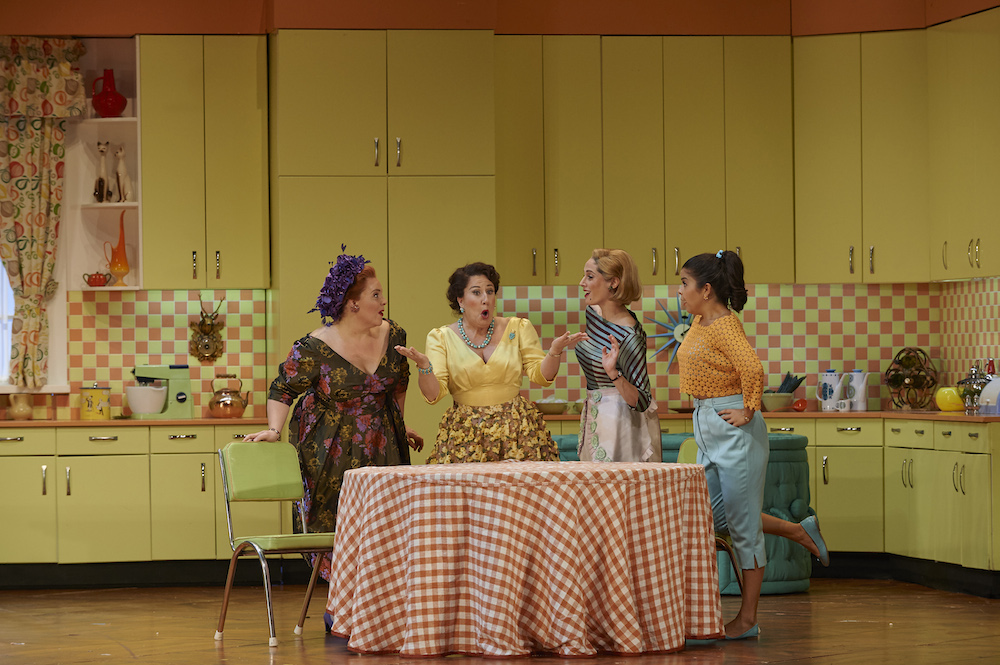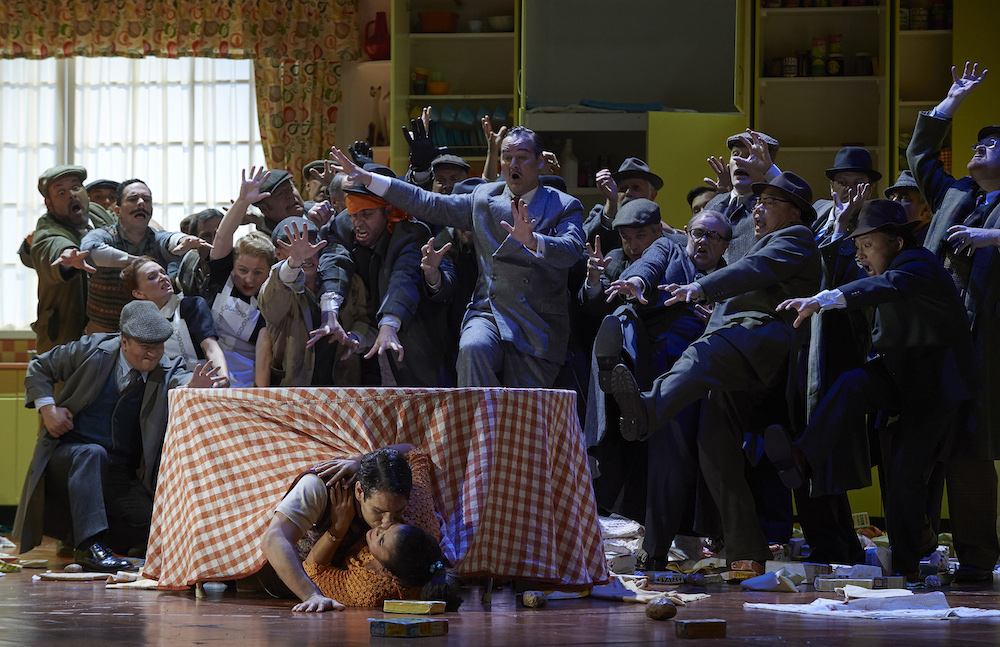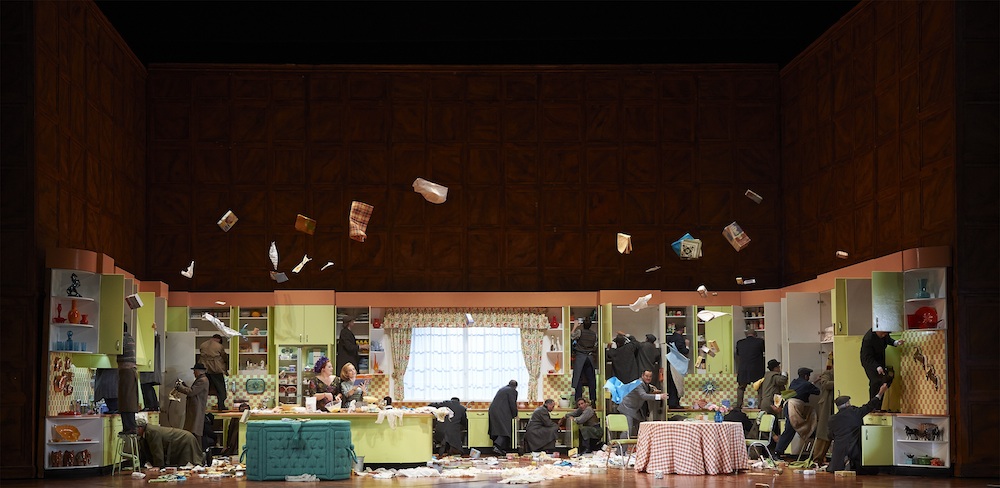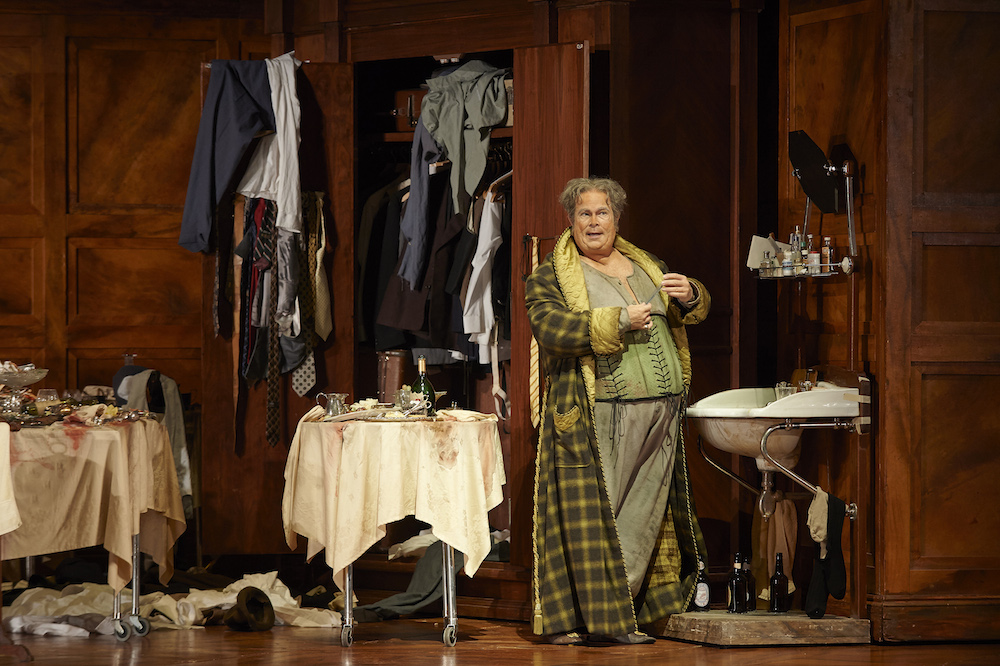
The Canadian Opera Company opened its 2014-2015 season on Friday evening with a high-spirited, all-Canadian production of Verdi’s final opera, Falstaff. Directed by the ever-so-talented Robert Carsen, whose creativity and imagination appear to know no bounds, the evening unfolded with style and panache.
For the production, a co-pro with Covent Garden, La Scala, the Met and the Dutch National Opera, Carsen has moved the action from 16th century England and the reign of Elizabeth I to the 1950s and the reign of Elizabeth II. And it’s a comfortable fit. This is no feeble-minded ”concept” production. It is well argued and thought through, drawing comparisons between, as Carsen writes, “the sunset of the aristocracy and the rise of the middle class” in both periods.
Although surrounded by a solid cast of Canadian stars, this Falstaff is very much Carsen’s show: quick paced, but never rushed; detailed, but never losing sight of the big picture; funny without resorting to vulgarity; clever but without self-indulgence. What is particularly satisfying is Carsen’s uncanny ability to move large numbers of people on, off, and around the stage with such ease. Witness the second scene of Act II (set in Alice Ford’s spacious kitchen), which had a frenetic, almost Keystone Kops sense of chaos, but always under control.
Conducting his first Falstaff, the much-admired COC music director, Johannes Debus, led his merry band of musicians through a relatively taut account of Verdi’s intricate and tricky score.
Falstaff is ‘through composed’, so there are no extended or readily excerptible arias per se (with the exception of Ford’s monologue). Verdi’s focus here is upon great ensemble singing and acting. And that is what we got on Friday evening: an ensemble that worked – in characteristic Canadian fashion – as a team. Given the intricacies of much of the writing (such as the final fugue), this show is only going to get tighter as performances continue.
Although the cast was not entirely consistent across the board, performances never fell below an acceptable level. By in large, the men dominated, led by the impassioned Ford of Russell Braun; the lyric Fenton of Frédéric Antoun; and the stentorian Dr. Caius of Michael Colvin. Tenor Colin Ainsworth and bass Robert Gleadow fleshed out the cast as Falstaff’s sidekicks – the ne’er-do-well, Bardolfo and Pistola.
As for the distaff side of things, the lovely Simone Osborne seemed to be having difficulty with pitch and in floating those crucial, silvery, sustained A flat’s she is asked to sing; while Lyne Fortin and Lauren Segal were well matched as Alice Ford and Meg Page.
But without a doubt, the stand out was the irrepressible Dame Quickly of Marie-Nicole Lemieux. One can easily see why the Québec contralto has had such an enormous success in Europe with this role, having sung it in London, Milan, Paris, and Vienna. Her repeated obeisance to Falstaff – “Reverenza!” – is worth the price of admission alone.
Verdi described Falstaff as “a rogue who gets up to all kinds of mischief… but in an amusing way.” – and that seems to be the way that Gerald Finley plays the part. He is a portly rogue, yes, but an adorable one. And although we know that he will probably never change, we actually feel a good deal of compassion for him. He is simply a man, after all, who suffers from human frailties and foibles as do we all. It’s one of the great baritone parts in all opera, and we should be honoured that Finley chose Toronto to sing his first performances of the role.
Although considered a staple of the repertoire, one does not often have the opportunity to see Verdi’s Falstaff on stage. It’s expensive. After all, it requires a large cast and – given the intricacy of the music – it requires a good deal of rehearsal time. So do yourself a favour and go to as many performances as you can. It’s a rich score and I can guarantee that you will find something new with each hearing.
Kudos to Alexander Neef and his team for making the COC a truly Canadian Opera Company.
- THE VOICE | Renée Fleming Turns Gold at Roy Thomson Hall - November 7, 2015
- THE SCOOP | Glenn Gould: Celebrating Genius with Cupcakes - September 28, 2015
- SCRUTINY | The Rebirth of R. Murray Schafer’s Apocalypsis - June 30, 2015

